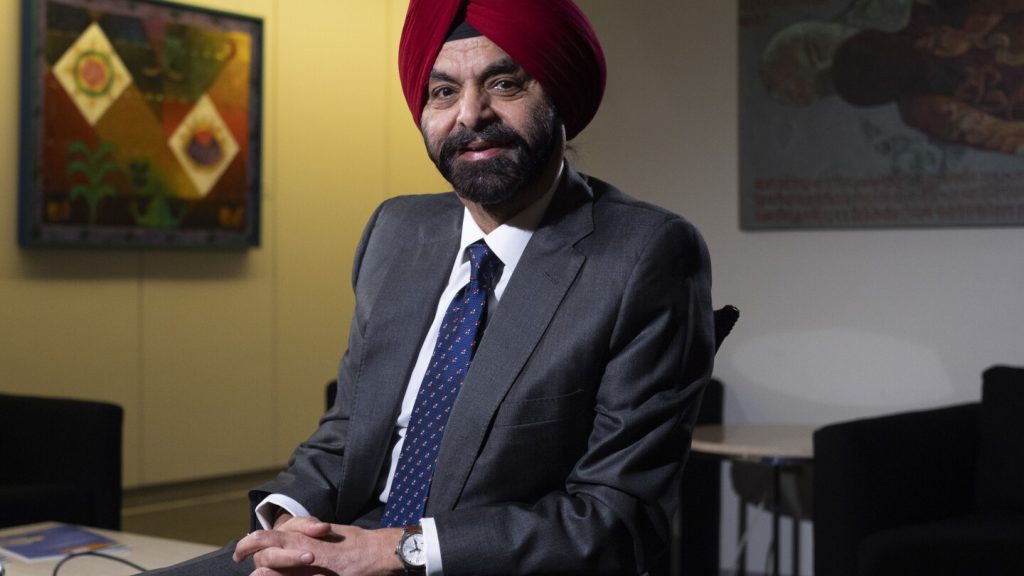As the World Bank and the International Monetary Fund hold their spring meetings in Washington, new initiatives are being announced to address a myriad of challenges facing the global economy. Ajay Banga, who took charge at the World Bank almost a year ago, highlighted plans to provide 300 million people in Africa with electricity by 2030 and 1.5 billion people worldwide with healthcare access over the same time frame. The focus is on financing climate projects and major cross-border initiatives that can impact large populations, especially as isolationism increases among member nations.
Banga’s appointment came after the resignation of David Malpass, who faced criticism for casting doubt on the science behind global warming. President Joe Biden, who nominated Banga, emphasized the need to address global challenges related to poverty reduction and climate change. Banga is now facing pressure to prioritize climate issues, with calls from climate activists and developing nations for a more equitable approach to climate finance. Developing nations argue that they should not bear the burden of reducing carbon emissions, as their energy consumption is relatively low compared to developed countries.
One of the challenges facing the World Bank is balancing the interests of powerful shareholders like the U.S. and China, especially as trade tensions escalate. Banga is advocating for collaboration on projects that expand healthcare services and provide electricity access to millions of people, particularly in developing regions. The World Bank’s role is crucial in post-conflict recovery efforts, as seen in the aftermath of the Israel-Hamas war, which caused extensive destruction and loss of life. The bank is working to provide humanitarian aid and support long-term investments for rebuilding efforts.
The World Bank’s involvement in conflict zones like Gaza highlights the necessity of addressing immediate humanitarian needs while planning for sustainable development in the future. Banga emphasized the importance of investing in infrastructure and job creation to empower young people in developing regions. The bank’s focus on climate projects and cross-border initiatives reflects a commitment to addressing interconnected challenges of poverty, fragility, conflict, and climate change. As the world faces a “perfect storm” of crises, the World Bank is striving to play a crucial role in promoting global recovery and sustainable development.


